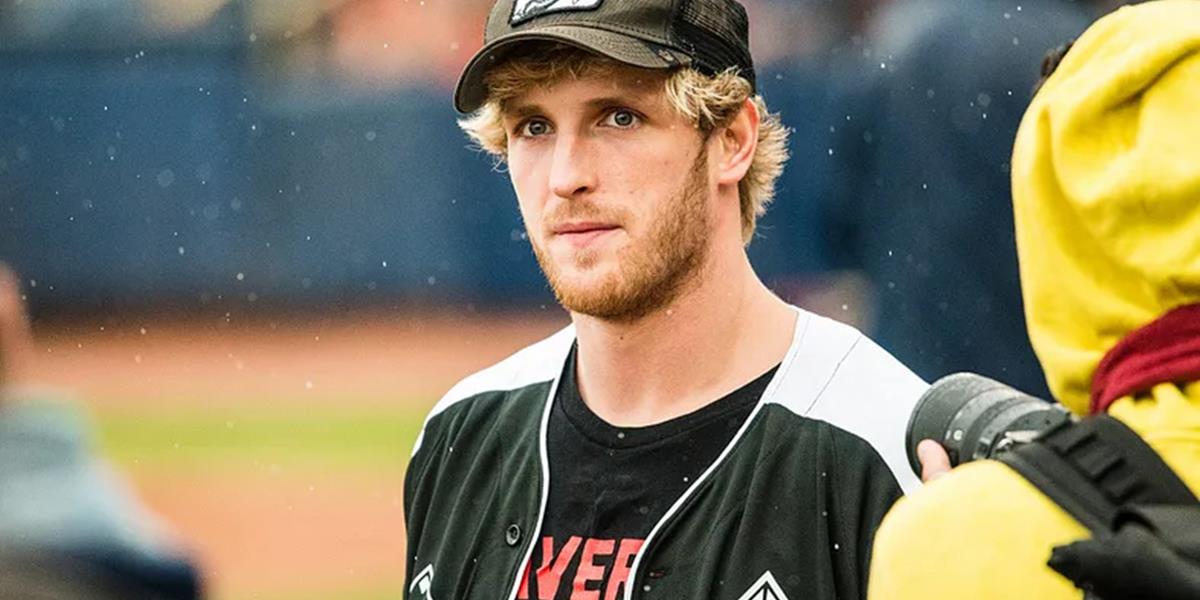1. CryptoZoo: The “Game” That Never Was
One of the most talked-about scandals involving Logan Paul is his role in the failed project called CryptoZoo. Marketed as a “fun game that makes you money,” CryptoZoo was supposed to be a blockchain-based game where users could buy and trade virtual animals, which would hatch from eggs bought with real money. The idea was hyped up by Paul, who promised his followers that the project would be revolutionary.After the initial excitement, it quickly became apparent that CryptoZoo was far from what was promised. The game never fully materialized, and users who invested in the project’s tokens were left with nothing but worthless digital assets. Despite the outcry from the community, Paul distanced himself from the project, claiming that the developers were at fault and that he had no direct control over the failed launch.
This pattern of blaming others rather than taking responsibility has become a hallmark of Logan Paul’s responses to criticism.
2. The Dink Doink Crypto Coin Debacle
Before CryptoZoo, there was another cryptocurrency scandal tied to Logan Paul: Dink Doink. Dink Doink was a meme coin that Paul heavily promoted on his social media channels. The coin, which was supposedly created as a joke, quickly gained traction among Paul’s fans, many of whom invested real money into it.It soon became clear that Dink Doink was nothing more than a pump-and-dump scheme. The value of the coin plummeted, and those who invested were left with significant losses. Once again, Paul distanced himself from the project, stating that he was merely supporting a friend’s idea and had no involvement in the actual development or execution of the coin.
This excuse did little to appease those who lost money, as it became evident that Paul had used his influence to push a worthless asset onto his followers.
3. The Maverick Clothing Line Controversy
Logan Paul’s Maverick clothing line is another example of his questionable business practices. While not a scam in the traditional sense, the brand has been criticized for its poor quality and overpriced products. Fans who purchased items from the Maverick line often reported receiving low-quality merchandise that did not match the high price tags.There were numerous complaints about shipping delays, lack of customer support, and difficulty obtaining refunds. Instead of addressing these concerns, Paul continued to promote the brand aggressively, focusing on new releases rather than resolving the issues with previous products.
This approach further alienated his fan base, many of whom felt that Paul was more interested in making a quick buck than delivering on his promises.
4. The “Pay-Per-View” Scandal
Another incident that tarnished Logan Paul’s reputation was his involvement in a pay-per-view event that promised exclusive content but failed to deliver. Paul hyped up the event, encouraging his fans to pay a hefty fee to access what was supposed to be never-before-seen footage and behind-the-scenes content.When the event aired, many fans were left disappointed, claiming that the content was underwhelming and not worth the price they paid. Instead of addressing the backlash directly, Paul deflected criticism, insisting that the event was a success and that the negative feedback came from a vocal minority.
This lack of accountability left a sour taste in the mouths of those who had supported the event.
5. The Japan Forest Incident
While not a scam in the traditional sense, it’s impossible to discuss Logan Paul’s controversies without mentioning the infamous Japan forest incident. In 2017, Paul faced worldwide backlash after he posted a video on YouTube that showed a dead body in Japan’s Aokigahara Forest, also known as the “suicide forest.” The video was widely condemned for its insensitivity and lack of respect.Rather than immediately taking responsibility for his actions, Paul initially defended the video, claiming it was meant to raise awareness about mental health. It wasn’t until the backlash reached a fever pitch that Paul issued an apology, but by then, the damage had already been done.
This incident marked a turning point in Paul’s career, as many began to question whether he truly understood the impact of his actions.
Logan Paul’s Involvement in Other Crypto Scams
While CryptoZoo and Dink Doink are two of the most well-known examples, they are not the only crypto projects Paul has been linked to that have gone awry. The following list shows other crypto scams that Paul either promoted or had some level of involvement in, further highlighting a troubling pattern of endorsing dubious projects.1. Yummy Coin: The “Charity” Token with Questionable Intentions
One of the lesser-known but equally controversial crypto projects Logan Paul promoted was Yummy Coin. Marketed as a “charity” cryptocurrency, Yummy Coin claimed that a portion of every transaction would be donated to help fight world hunger. The concept appealed to many who were looking to make a positive impact while investing in the burgeoning world of crypto.Paul promoted Yummy Coin across his social media platforms, encouraging his followers to buy into the token. Soon after the initial hype, the coin’s value started to plummet, and the promised charitable donations were called into question. Despite claims from the developers that significant amounts were being donated, there was little transparency regarding where the money was actually going or how much was being donated.
As the value of Yummy Coin continued to fall, many investors accused Paul and the project’s creators of using the charity angle as a facade to attract investment while pocketing the profits. Paul, once again, distanced himself from the fallout, claiming that he was merely a promoter and had no control over the project’s execution. This response did little to quell the anger of those who had invested in Yummy Coin, many of whom felt they had been misled by Paul’s endorsement.
2. Zootopia Token: The Ill-Fated NFT Venture
Another crypto project that Logan Paul promoted was Zootopia Token, an NFT (Non-Fungible Token) project that promised unique digital art pieces tied to the theme of a futuristic animal kingdom. The project was heavily marketed on social media, with Paul and other influencers hyping it as the next big thing in the NFT space.Like many of Paul’s previous crypto ventures, Zootopia Token quickly ran into problems. The project’s developers failed to deliver on their promises, and the NFTs turned out to be nothing more than generic images with little to no value. Investors who had purchased the tokens expecting a return on their investment were left holding worthless digital assets.
Paul, who had been one of the most prominent promoters of Zootopia Token, once again attempted to distance himself from the project’s failure. He claimed that he was only involved in promoting the project and had no control over its development or outcome.
3. Legends of the Cryptoverse: The “Revolutionary” Game That Never Took Off
Legends of the Cryptoverse was another blockchain-based game that Logan Paul promoted to his massive audience. The game was billed as a revolutionary play-to-earn experience where players could earn crypto rewards by participating in battles and completing quests. The project was surrounded by hype, with Paul promising that it would be a groundbreaking addition to the gaming and crypto worlds.Despite the grand promises, Legends of the Cryptoverse never gained the traction that was expected. The game’s development was plagued by delays, technical issues, and a lack of transparency from the developers. Many of the features that were promised during the promotional phase were either delayed indefinitely or never materialized at all.
Investors who had bought into the game’s tokens and NFTs were left with assets that had little to no value, as the game’s player base dwindled and the development team went silent. Paul, who had been one of the game’s most vocal supporters, once again took a step back, claiming that he had no involvement in the game’s development and was merely a promoter.
4. Pokémon Crypto: The Unauthorized and Misleading Project
In a particularly audacious move, Logan Paul was also linked to a crypto project that attempted to capitalize on the popularity of the Pokémon franchise. The project, known as Pokémon Crypto, claimed to be an officially licensed cryptocurrency tied to the beloved Pokémon brand. The project’s website and promotional materials featured imagery and language that suggested a connection to the official Pokémon company.Paul promoted the project to his followers, many of whom were already fans of Pokémon. It soon became apparent that the project was entirely unauthorized and had no official connection to the Pokémon franchise. The creators of Pokémon Crypto were using the brand’s name and imagery without permission, and the project was quickly shut down after receiving legal threats from the Pokémon Company. Once the project was exposed as a scam, Paul once again attempted to distance himself, claiming that he had been misled by the project’s creators and was unaware of its unauthorized nature.
This did little to restore the trust of those who had invested in the project based on Paul’s endorsement. The incident further damaged Paul’s reputation in the crypto space and raised questions about his due diligence in promoting such ventures.
The Prime Hydration Controversy: Broken Promises and Questionable Practices
In recent years, Logan Paul has ventured beyond social media and cryptocurrency to launch his own line of sports drinks, aptly named Prime Hydration. Co-founded with fellow YouTuber and influencer KSI, Prime was marketed as a premium hydration beverage designed to compete with established brands like Gatorade and Powerade.While the product quickly gained popularity, especially among the duo’s young fanbase, it wasn’t long before the venture was marred by controversy.
1. Broken Promises to Retail Partners
One of the most significant issues surrounding Prime Hydration has been its inability to consistently deliver on contracts with retail partners. When Prime first launched, it was met with a wave of excitement, leading to high demand from both consumers and retailers. As the product’s popularity grew, so did complaints from retail partners who were unable to keep their shelves stocked due to delayed or incomplete shipments from the company.Several small to mid-sized retailers reported that they had entered into agreements with Prime to carry the product, only to experience significant delays in receiving their orders. In some cases, orders were either partially fulfilled or not fulfilled at all, leaving retailers scrambling to explain the situation to frustrated customers. These delays were particularly problematic for retailers who had invested in marketing campaigns and in-store displays to promote Prime, only to have their efforts undercut by the company’s logistical failures.
Despite these ongoing issues, Paul and KSI continued to aggressively promote Prime on their social media channels, often touting the product’s success without addressing the supply chain problems that were plaguing their retail partners.
2. Overpromising and Underdelivering
In addition to the problems with fulfilling retail contracts, Prime Hydration has also faced criticism for overpromising and underdelivering on the product itself. While the drink was marketed as a superior hydration option packed with electrolytes, vitamins, and minimal sugar, some consumers and industry experts have questioned whether it truly lives up to its claims.For instance, some nutritionists have pointed out that Prime’s ingredient list isn’t significantly different from that of other sports drinks, raising doubts about the company’s claims of being a game-changer in the industry. There have been complaints from consumers who found that the taste and quality of the product didn’t match the hype created by Paul and KSI.
These issues were exacerbated by reports of inconsistent quality control. Some batches of Prime were found to have varying levels of flavor concentration, leading to a product experience that was not consistent across the board.
3. Controversial Marketing Tactics
Prime Hydration’s marketing strategies have also come under scrutiny, with some accusing the brand of using unethical tactics to drive sales. Paul and KSI leveraged their massive online followings to create a sense of scarcity around the product, often promoting it as being sold out or difficult to find. While this approach certainly generated buzz, it also led to accusations that the brand was artificially limiting supply to create demand — a tactic that many saw as manipulative.Prime’s aggressive marketing campaigns have targeted a young, impressionable audience, raising concerns about the ethical implications of such strategies. Given Paul’s history of promoting questionable products to his fanbase, some critics have suggested that Prime’s marketing is yet another example of him leveraging his influence in ways that prioritize profit over consumer welfare.
The use of celebrity endorsements and influencer marketing to push Prime has also been controversial. Critics argue that the drink’s popularity is driven more by the star power behind it than by the quality of the product itself. This reliance on celebrity influence, rather than the merits of the product, has led some to question whether Prime is a sustainable venture or just another flash-in-the-pan business endeavor for Paul.
4. Legal Troubles and Contract Disputes
As Prime Hydration has grown, so too have the legal challenges associated with the brand. There have been reports of contract disputes with manufacturing partners and suppliers, some of whom have claimed that the company failed to meet its obligations under their agreements. These disputes have occasionally spilled into the public domain, with some parties taking legal action against Prime.One notable case involved a dispute with a bottling company that claimed Prime had failed to pay for services rendered, leading to a lawsuit. While the specifics of the case were kept largely under wraps, the legal battle highlighted the difficulties that can arise when a rapidly growing brand is unable to keep pace with its operational demands.
These legal challenges have not only caused headaches for the company but have also damaged its reputation among industry insiders. As Prime continues to expand, it remains to be seen whether the company can resolve these issues or if they will continue to plague the brand.
A Career Marked by Controversy and Unfulfilled Promises
Logan Paul’s rise to fame has been anything but conventional. From his early days as a social media sensation to his ventures into the world of cryptocurrency and consumer products, Paul has consistently found himself at the center of controversy. While his ability to capture attention and create buzz is undeniable, a closer look at his career reveals a troubling pattern of overpromising and underdelivering, often leaving his fans and investors in the lurch.Whether it’s his involvement in failed crypto projects like CryptoZoo and Dink Doink, his promotion of dubious ventures such as Yummy Coin and Zootopia Token, or the logistical and ethical challenges surrounding his Prime Hydration brand, Paul has repeatedly distanced himself from the fallout when things go wrong. Instead of taking responsibility for the negative outcomes, he has often deflected blame onto others, leaving those who trusted his endorsements to deal with the consequences.
This lack of accountability has tarnished Paul’s reputation, transforming what could have been legitimate business successes into cautionary tales. His ventures, while initially promising, have frequently been characterized by unmet expectations, broken promises, and a prioritization of profit over integrity. Despite his continued popularity, these repeated missteps have led many to question whether Paul is genuinely committed to delivering value to his audience or if he is merely exploiting his influence for personal gain.
As Logan Paul moves forward, the challenge he faces is clear: Can he shift from a career defined by controversy to one built on credibility and trust? Or will he continue down a path where his ventures, no matter how high-profile, are ultimately remembered more for their failures and the people they let down than for any lasting success? The answer to this question will determine whether Paul’s legacy is one of fleeting fame or enduring impact.

Grant Cardone, a name synonymous with real estate and sales training, has built an empire around his persona. But underneath the flashy seminars, high-energy presentations, and promises of astronomical returns, many argue that his methods are nothing more than a sophisticated scam.

Learn how the scam works, the players, and how to protect your venture. Don't let fraud derail your dreams!

Discover Real-World VC Scams: How to Spot Red Flags and Avoid Falling Victim. Learn how scammers used Sequoia Capital, how Zano went bankrupt and more. Stay Informed to Protect Your Investments.

How to recognize Venture Capital Scams? It covers five common tricks used by scammers and provides tips for identifying warning signs and safeguarding your money, including examples from actual scams. It's a helpful guide for anyone looking for or to invest.

It's important to be aware of the potential for unethical behaviour in any industry, and to do your due diligence when working with any individual or firm.

Think all VCs are safe? Read our true story about narrowly escaping a VC scam. Get savvy tips to recognize the warning signs and protect your startup.

